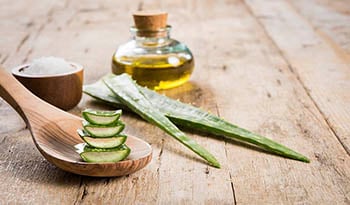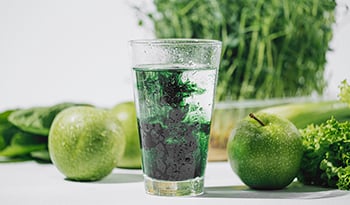What Are Postnatal Vitamins? 9 Important Postnatal Health Nutrients

Congratulations! The baby is here, and you no longer need those prenatal vitamins. Right? Not so fast. While prenatal vitamins are intended to support expecting mothers, new moms are still in great need of support to ensure you are getting the right micronutrients to power all your new responsibilities and increase your longevity.
From doing extra laundry and changing diapers to breastfeeding and taking care of other family members, a lot of energy expenditure occurs along with being a new mom. Taking a postnatal vitamin and maintaining good nutrition habits are among the best ways to maintain your health.
Postnatal vitamins are supplements intended to help lactating mothers meet their recommended daily dose of nutrients. Let’s explore common nutrients found in postnatal vitamins and how they support you as a new mom, as well as your baby’s development.
Top Nutrients in Postnatal Vitamins
It is important for moms to get the proper nutrients both during and after pregnancy. Prenatal vitamins are taken during pregnancy, while postnatal vitamins provide the micronutrients you need after delivery. Here are some top nutrients in postnatal vitamins.
1. Omega-3 Fatty Acids
Developing babies need omega-3 fatty acids, especially the longer chain DHA (docosahexaenoic acid) from fish or algal oils, for proper brain, eye, and nerve cell formation. There is also some evidence that fish oil supplementation also helps improve mood and deal with stress after childbirth.
2. Choline
Choline is a critical nutrient for proper infant brain development and memory. The need for choline increases during pregnancy and is highest for moms who are breastfeeding. Choline also supports maternal immune function and intestinal health.
Foods high in choline include eggs, organ meat, caviar, fish, shitake mushrooms, and soybeans. If some of these foods are a bit too exotic for your taste to consume on a regular basis, taking a postnatal vitamin with choline is a good alternative.
It is recommended that lactating mothers consume 550 mg of choline daily throughout the first year after giving birth.
3. Iron
Iron levels can decrease after childbirth due to blood loss. For breastfeeding moms, iron is an important mineral to replenish for both you and your baby.
Iron supports the proper development of your baby’s thyroid function. Your body needs iron to make hemoglobin, a protein that carries oxygen in your red blood cells. If you have low iron and thus low hemoglobin, you can develop iron deficiency anemia. Anemia causes you to feel tired with low energy, which can affect your mood and make it more difficult to bond with your baby. You could also feel more irritable and be more vulnerable to postpartum depression.
Some foods high in iron include iron-fortified cereal, lentils, lima beans, oysters, and chicken liver. A postnatal vitamin is also a good source of iron.
4. Vitamin B12
An important nutrient for proper brain development in your baby, vitamin B12 should be an ingredient in the postnatal vitamin you choose. B12 also helps with red blood cell development, as well as DNA formation and energy production. Babies deficient in vitamin B12 have increased risk for failure to thrive as well as developmental delays. Clinical presentation of B12 deficiency in infants can include irregular movements, delayed social smile, eyelid twitching, and involuntary muscle contractions.
Foods high in B12 include beef, liver, chicken, tuna, salmon, dairy, and eggs. B12 supplementation with a quality postnatal vitamin is ideal.
5. Vitamin A
The National Institutes of Health recommends 1,200-1,300 mcg of vitamin A each day if you are breastfeeding.
Vitamin A is an important nutrient needed for postpartum tissue repair. It also helps in the development of your baby’s eyes, heart, lungs, and bones. Vitamin A plays a critical role in the development of the respiratory, nervous, and circulatory systems.
You also need sufficient vitamin A for proper immune function and to protect your eyes from age-related decline.
Vitamin A is available as retinol or via provitamin A carotenoids such as beta-carotene.
Foods high in vitamin A include leafy greens, cantaloupe, mango, milk, eggs, tomato, and grapefruit.
Vitamin A is a fat-soluble vitamin, meaning it can build up in your body and cause toxicity if you take too much retinol. Provitamin A carotenoids are not toxic as the body will reduce converting them to vitamin A if there are sufficient levels in the body. Symptoms of vitamin A toxicity include abdominal pain, vomiting, irritability, and drowsiness. Bulging fontanelles may also be seen in infants with vitamin A toxicity. A suitable postnatal vitamin should provide sufficient vitamin A for you and your baby while ensuring you don’t get too much.
6. Vitamin D
Vitamin D is essential for many processes in the body, including proper immune function. Vitamin D can be formed with the help of sunlight acting on the skin. It supports you and your baby’s immune system as well as the brain and nerves. Sufficient vitamin D levels help reduce the risk of anxiety and postpartum depression.
Vitamin D3 is found in high concentrations in fatty fish like mackerel and salmon. Additional foods high in Vitamin D include fortified orange juice and milk, oranges, sardines, spinach, kale, and beef liver.
Research shows that breastfeeding women are at increased risk of vitamin D deficiency. Supplementing with a proper postnatal vitamin can help decrease your risk.
7. Moringa Leaf
Natural galactagogues, or substances that promote or increase the flow of a mother’s milk, have been used since ancient times to support milk production for lactating mothers.
Moringa leaves are high in protein, calcium, iron, zinc, potassium, and vitamins A, B, C, and E. The United Nations recommends moringa for pregnant women and nursing moms alike. This nutrient powerhouse can help replace lost nutrients that are depleted during pregnancy, and it may have anti-aging properties as well.
A special added benefit for women after pregnancy is hair follicle health support. Many women experience hair loss after pregnancy, which can be a major bummer after lots of hair growth that can happen during pregnancy due to increased hormone levels. The nutrients in moringa are helpful in strengthening the hair follicles postpartum.
A thoughtfully designed postnatal vitamin will have moringa leaf listed on the supplement label.
8. Lutein
A new study shows that breastfeeding moms who supplement with lutein effectively raise the lutein levels in the infant as well.
Lutein supports brain and eye health in children. It also supports eye health for mom and is a powerful antioxidant, protecting your body from damaging free radicals that contribute to diseases.
A lutein-rich diet may improve learning, memory, visual processing, verbal fluency, and problem-solving in adults. The infant brain shows a high concentration of lutein, which suggests a need for lutein during brain development.
Foods rich in lutein include kale, spinach, romaine lettuce, corn, bell peppers, pistachios, and parsley.
Premium postnatal vitamins will include lutein in their formulations.
9. Vitamin E
Fat-soluble vitamin E plays a key role in strengthening immunity and healthy eyes. Your baby will benefit from vitamin E, whose health benefits include healthy skin and proper functioning of various organs in the body.
Vitamin E is also a powerful antioxidant. Strong antioxidant activity can possibly delay or prevent chronic disease development associated with free radicals.
Signs of vitamin E deficiency include decreased immune function, ataxia (loss of body movement), peripheral neuropathy (numbness, tingling, and weakness, typically in the hands and feet), and damage to the retina that can impair vision (retinopathy). Due to its fat-soluble nature, overconsumption of vitamin E can also lead to toxicity, which can result in excess bleeding.
Nutritional sources of vitamin E include wheat germ oil, sunflower seeds, almonds, peanuts, collard greens, pumpkin, and red bell pepper.
An acceptable postnatal vitamin will have the correct dosage of vitamin E for lactating mothers to consume daily.
Postnatal Vitamins: The Big Picture
Nutrients from postnatal vitamins such as Vitamins A, B12, D, and E, along with choline, moringa leaf, lutein, and iron, are the top ingredients you should look for in a high-quality postnatal vitamin. Other ingredients to look for include vitamin K, riboflavin, biotin, iodine, selenium, copper, manganese, and molybdenum.
Taking care of yourself and your baby is your top priority postpartum. Eating the right nutrient-dense foods and taking a quality postnatal vitamin should be at the top of the list for self-care and baby care while breastfeeding.
Talk to your doctor before taking any supplement, especially while pregnant or breastfeeding, or if you have any underlying conditions.
References:
- Firouzabadi FD, Shab-Bidar S, Jayedi A. The effects of omega-3 polyunsaturated fatty acids supplementation in pregnancy, lactation, and infancy: An umbrella review of meta-analyses of randomized trials. Pharmacol Res. 2022;177:106100.
- Amini S, Jafarirad S, Amani R. Postpartum depression and vitamin D: a systematic review. Crit Rev Food Sci Nutr. 2019;59(9):1514-1520. doi:10.1080/10408398.2017.1423276
- Lewis ED, Richard C, Goruk S, et al. Feeding a mixture of choline forms during lactation improves offspring growth and maternal lymphocyte response to ex vivo immune challenges. Nutrients. 2017;9(7):713. Published 2017 Jul 7. doi:10.3390/nu9070713
- Sherry CL, Oliver JS, Renzi LM, Marriage BJ. Lutein supplementation increases breast milk and plasma lutein concentrations in lactating women and infant plasma concentrations but does not affect other carotenoids. J Nutr. 2014;144(8):1256-1263. doi:10.3945/jn.114.192914
- Tienboon P, Unachak K. Iron deficiency anaemia in childhood and thyroid function. Asia Pac J Clin Nutr. 2003;12(2):198-202
DISCLAIMER:This Wellness Hub does not intend to provide diagnosis...















































































 Table of Contents
Table of Contents














